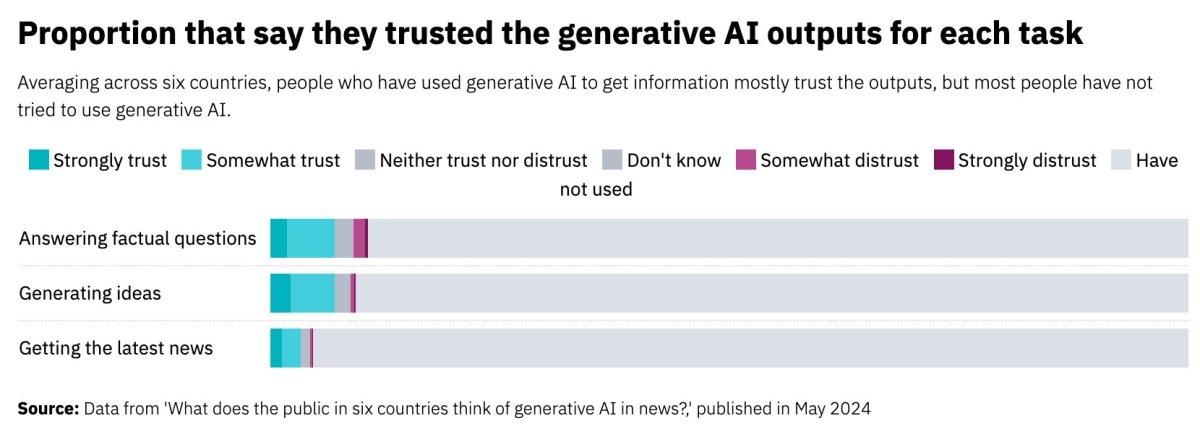
Hype Dysphoria
While CEOs and investors rush to jam AI into as many products as possible, the general public seems unable to give a hoot.
In a new study conducted by Oxford University and the Reuters Institute that asked roughly 12,000 people in six countries about AI, large swaths of respondents said they had never used popular tools like OpenAI’s ChatGPT or Microsoft Copilot — and between 20 and 30 percent said they’d never even heard of them.
Using the YouGov platform, the researchers asked 2,000 people each in Argentina, Denmark, France, Japan, the United States, and the United Kingdom a battery of questions related to AI, from how often they used programs and their familiarity with various brand names to whether they trusted the tools and the people using them.
The results were surprising, to say the least, suggesting companies are vastly overestimating how much the general public cares about AI.
“Large parts of the public are not particularly interested in generative AI,” Richard Fletcher, the Reuters Institute’s research director and the lead author of the study, told the BBC, which highlights a “mismatch” between the “hype” surrounding the tech and the public’s interest in it.
Just a Number
When asked whether they trust generative AI outputs, the results were even more stark. Across ages and nationalities, an overwhelming percentage of respondents said they hadn’t used AI tools enough to trust or distrust its outputs, be they writing emails, answering questions, or getting the latest news. Another substantial percentage across demographics said they either didn’t know enough about the topic or were ambivalent when it came to trusting AI.

Unsurprisingly, younger people seemed far more likely to respond that they had used the tools, with 58 percent across all six countries saying they’d used ChatGPT at least once, compared to the 16 percent of people 55 or older who said they’d tried it.
In that same vein, younger people also seemed more likely to expect AI to change their own lives significantly, while more than half of the respondents expected it to change politics, journalism, and science.
“People’s hopes and fears for generative AI vary a lot depending on the sector,” Fletcher told the BBC. “People are generally optimistic and about the use of generative AI in science and healthcare, but more wary about it being used in news and journalism, and worried about the effect it might have on job security.”
The overarching message, according to the research director, is one of nuance — not just for the populace forced to reckon with AI, but for business and policy leaders who are thrusting it upon them.
“It is important to keep this quite nuanced and differentiated set of expectations in mind in interpreting people’s general expectations around what impact they think generative AI will have for them personally,” the study reads, “as well as for society at large.”
More on AI and society: African Workers Doing OpenAI’s Training Say They’re Being Subjected to “Modern Day Slavery“